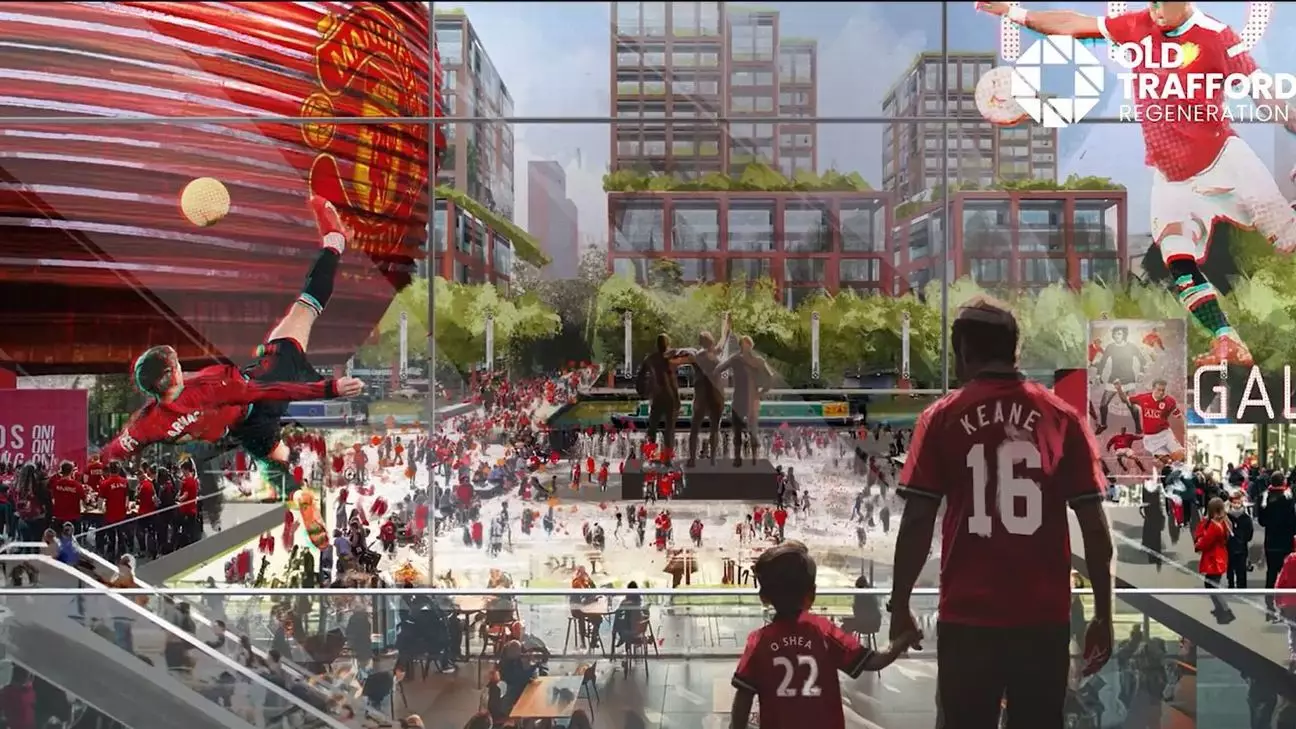Manchester United’s vision for transforming their storied home ground, Old Trafford, has recently received a significant boost thanks to the UK government’s endorsement. Chancellor Rachel Reeves has publicly backed this ambitious redevelopment, highlighting a commitment to modernizing the country’s planning framework. This initiative not only aims to improve the club’s facilities but is also seen as a catalyst for broader urban regeneration in the surrounding area of Greater Manchester.
The Chancellor’s announcement of supporting a regeneration project underscores a shift towards a “pro-development” stance that the government is eager to promote. The plans detail not just an upgrade of the iconic stadium, but also the introduction of new residential, commercial, and public spaces that will rejuvenate the community. Such a pioneering approach hints at a larger strategy to invigorate the region’s economy and improve the quality of life for its residents.
A Collaborative Vision for Regeneration
United’s CEO, Omar Berrarda, expressed optimism about the potential outcomes of the project. He emphasized that the redevelopment of Old Trafford could act as a vital spark for renewing Greater Manchester, which has faced challenges in securing the necessary investment. Berrarda noted the need for collaboration among various stakeholders, including local authorities and community leaders, to ensure the success of this ambitious project.
The proposed plans indicate a unique cooperative structure, with the potential establishment of a mayoral development corporation dedicated to overseeing the project. This collective effort is aimed at making the vision a reality while ensuring that the local community is actively involved in the transformation process. By creating a landmark that reflects the region’s rich cultural heritage, the initiative holds the promise of fostering pride among Manchester residents.
As discussions continue, Manchester United is weighing its options regarding the future of their stadium. Reports suggest that the club is favoring the construction of a new, modern arena with a capacity of 100,000, rather than renovating the existing Old Trafford, which could only accommodate around 87,000 spectators. This decision is poised to significantly impact the club’s long-term strategy, fan experience, and regional branding.
Financial implications accompany these plans as well, with the projected cost of a new stadium exceeding £2 billion ($2.5 billion) and a timeline extending over six years. Such investment signifies a deep commitment to not only enhancing the facilities but also to uplifting the surrounding area. With influential figures like Sir Jim Ratcliffe and Mayor Andy Burnham involved in discussions, the project is gaining momentum and public interest.
The impending decision on whether to renovate the existing stadium or embark on the journey of constructing a new one is crucial for Manchester United. The club is expected to announce its preferred course of action before the summer, signaling the beginning of a new chapter in its storied history.
Whatever path is chosen, the collaboration and support from government bodies and local leaders suggest a holistic approach aimed at revitalizing Old Trafford and its surrounding community. For fans and residents alike, the outcome could reshape Manchester’s landscape, providing a sustainable example of how sports and community development can go hand in hand.
